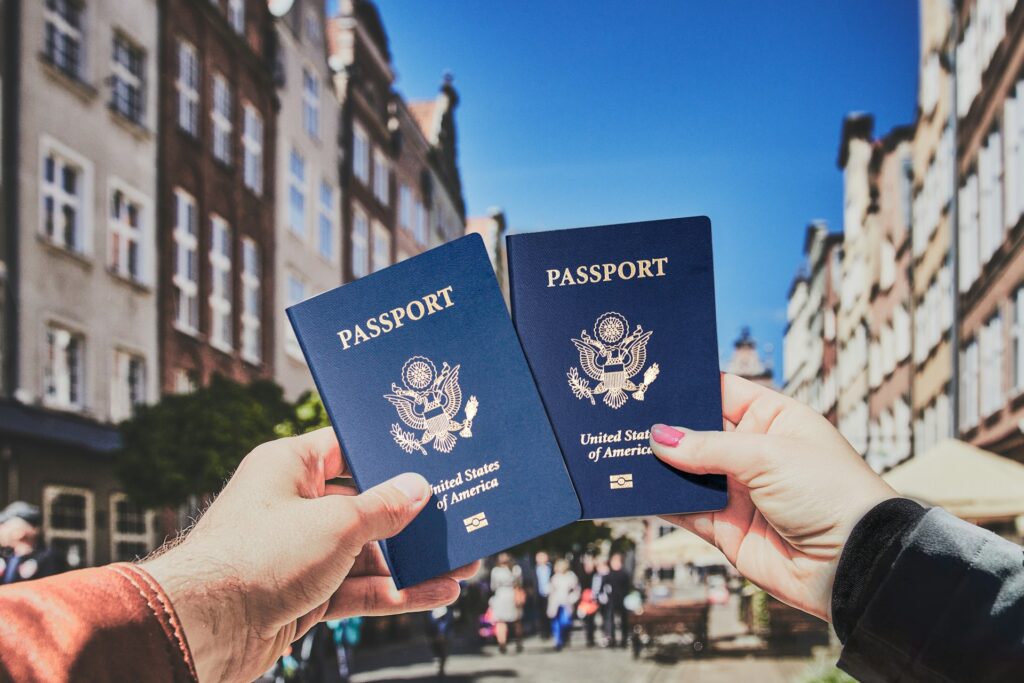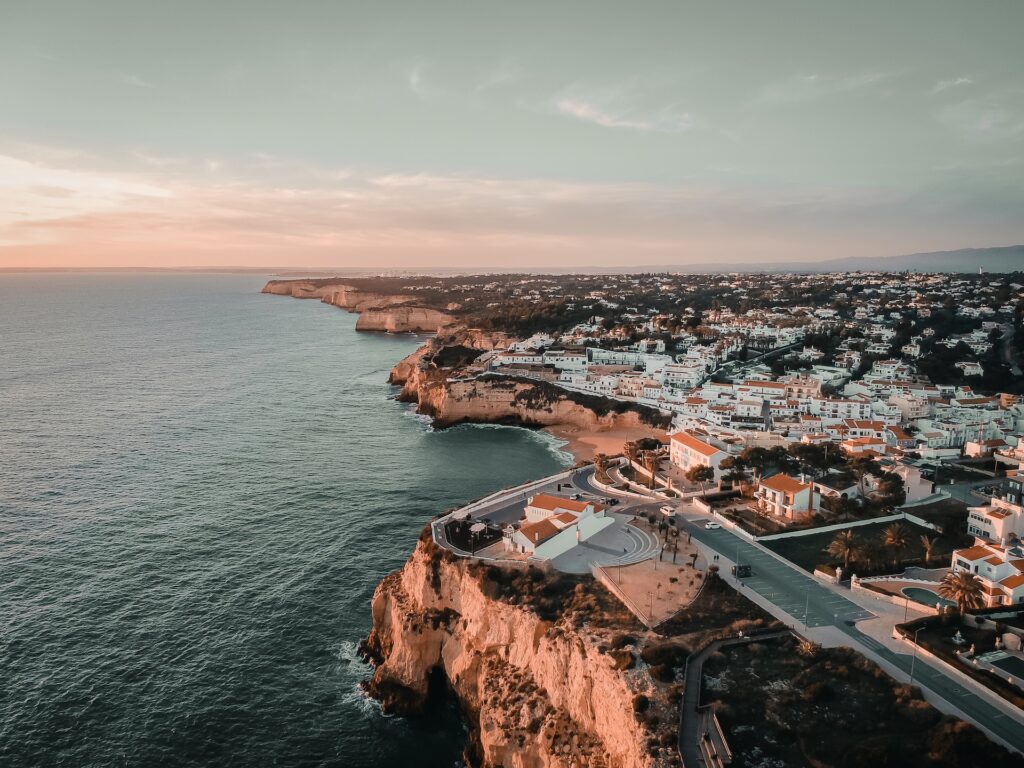Are you considering a peaceful, fulfilling retirement in a beautiful, culturally rich country? Look no further than Portugal. With its stunning landscapes, affordable cost of living, excellent healthcare, and welcoming communities, Portugal has become a top choice for retirees from around the globe.
In 2024, the appeal of this Mediterranean gem continues to grow, offering retirees an ideal blend of tranquility and adventure. This ultimate guide will walk you through everything you need to know about retiring in Portugal, from the best locations and residency options to healthcare and lifestyle tips, ensuring you can make the most of your golden years in this enchanting country.
Why retire in Portugal?
Portugal’s unique benefits make it a highly attractive retirement destination for people worldwide. Here are some compelling reasons why Portugal should be at the top of your retirement list:
Mild Climate:
Portugal boasts a temperate climate with over 300 days of sunshine a year. The mild winters and warm summers make it a perfect place for those looking to escape harsh weather.
Affordable Cost of Living:
Compared to other Western European countries, Portugal offers a lower cost of living. Housing, groceries, dining out, and healthcare are all reasonably priced, allowing retirees to enjoy a comfortable lifestyle on a modest budget.
Excellent Healthcare:
Portugal has a high-quality healthcare system, with both public and private options available. The country is known for its well-trained medical professionals and modern facilities, ensuring retirees have access to top-notch medical care.
Welcoming Expat Community:
Portugal is home to a growing expat community, making it easy for retirees to connect with others who have made the same move. Many cities and towns have social clubs and activities geared toward expats.
Safety and Stability:
Portugal is one of the safest countries in Europe, with low crime rates and a stable political environment. According to the 2024 Global Peace Index (GPI), Portugal ranks as the seventh safest country in the world, following Iceland, Ireland, Austria, New Zealand, Singapore, and Switzerland. This peace of mind is invaluable for retirees seeking a secure and tranquil place to live.
Residency Options:
Portugal offers several residency programs for retirees, including the popular Golden Visa and the D7 Visa. These programs provide a straightforward path to residency for those who meet the financial and investment requirements.
Proximity to Europe:
Its strategic location makes Portugal a convenient gateway to the rest of Europe. Whether you want to visit nearby countries or have family and friends visit you, travel is easy and accessible.

Who Can Retire in Portugal?
Retiring in Portugal is an appealing option for a wide range of individuals from around the world. Here are the main categories of people who can retire in Portugal:
EU/EEA and Swiss Citizens:
Citizens of the European Union (EU), European Economic Area (EEA), and Switzerland can retire in Portugal with minimal bureaucracy. They have the right to live, work, and retire in Portugal without needing a visa or residence permit, although registration with local authorities is required after a certain period.
Non-EU/EEA/Swiss Citizens:
Non-EU citizens, including those from countries such as the United States, Canada, Australia, South Africa, and the United Kingdom, can retire in Portugal by applying for one of the residency visas designed for retirees and other long-term stays.
Visa Options to Retire in Portugal
Golden Visa
The Portugal Golden Visa program allows non-EU citizens to obtain residency by making a qualifying investment in Portugal. This can include investing in Portuguese companies, cultural donation or other approved investment options. It’s a popular option for retirees who have the financial means to invest in the country.
D7 Visa (Passive Income Visa)
The D7 Visa, also known as the Passive Income Visa, is designed for non-EU citizens who have a minimum regular passive income of €820 monthly, such as pensions, rental income, or dividends. Applicants must demonstrate sufficient income to support themselves and any dependents without needing to work in Portugal.
Citizenship or Permanent Residency in Portugal for retirees
Choosing between citizenship and permanent residency in Portugal for retirees depends on various factors, including your long-term plans, lifestyle preferences, and legal considerations. Here’s a breakdown of the options:
Portuguese Citizenship
- Full Rights: As a citizen, you have all the rights and obligations of a Portuguese national. This includes voting in all elections, running for public office, and holding a Portuguese passport.
- European Union Benefits: Portuguese citizenship grants you EU citizenship, allowing you to live, work, and travel freely in any EU/EEA country.
- Language Requirement: To become a citizen, you need to pass a basic Portuguese language test (A2 level), which demonstrates basic proficiency.
- Dual Citizenship: Portugal allows dual citizenship, so you can keep your original nationality.
Permanent Residency
- Residency Rights: You can live, work, and study in Portugal indefinitely, as long as you renew your residency permit every 5 years.
- Health and Social Benefits: Permanent residents have access to Portugal’s public healthcare system and social services.
- Travel: You can travel freely within the Schengen Area (26 European countries) for up to 90 days within any 180-day period.
- No Political Rights: You can’t vote in national elections, although you can participate in local elections after some years of residency.
Which is Better for Retirees?
- If you are primarily interested in living in Portugal without the need for political rights or an EU passport, permanent residency might be sufficient and is easier to obtain.
- If you want the benefits of an EU passport, including the ability to live anywhere in the EU and full political rights in Portugal, then citizenship is the long-term goal.
In most cases, retirees start with permanent residency and later apply for citizenship after fulfilling the 5-year residency requirement.

Best Places to retire in Portugal
Retiring in Portugal offers a wealth of opportunities to enjoy a fulfilling and enriching lifestyle. Every region of Portugal has its unique charm, making it a desirable retirement destination globally.
Retire in Algarve
The Algarve, located in the southernmost region of Portugal, is renowned for its stunning coastline, warm climate, and relaxed way of life. Retirees flock to this region to enjoy its golden beaches, picturesque fishing villages, and world-class golf courses. With its affordable living costs and high quality of life, the Algarve is ideal for a tranquil, sun-drenched retirement.
Retire in Lisbon
Lisbon, Portugal’s vibrant capital city, offers retirees a mix of cosmopolitan living and historic charm. Lisbon, nestled between seven hills overlooking the Tagus River, boasts rich cultural heritage with cobblestone streets, colorful neighborhoods, and landmarks. Retirees can enjoy the lively arts scene, savor delicious cuisine, and explore numerous museums, galleries, and historic sites.
Retire in Porto
Porto, Portugal’s second-largest city, is famous for its historic architecture, picturesque riverside setting, and renowned port wine. Retirees are drawn to Porto for its laid-back atmosphere, friendly locals, and thriving cultural scene. Porto’s charming streets, bustling markets, and riverside promenades offer retirees a unique blend of old-world charm and modern amenities.
Retire in Cascais
Located just a short drive from Lisbon, Cascais is a chic seaside town known for its luxury resorts, sandy beaches, and cosmopolitan vibe. Retirees flock to Cascais to enjoy its upscale amenities, gourmet restaurants, and vibrant social scene. With its Mediterranean climate and stunning coastal scenery, Cascais provides retirees with the perfect backdrop for a relaxed and indulgent retirement lifestyle.
Retire in Silver Coast
The Silver Coast, stretching from Porto to Lisbon, is a hidden gem known for its unspoiled beaches, rugged coastline, and charming fishing villages. Retirees are drawn to the Silver Coast for its laid-back atmosphere, natural beauty, and affordable cost of living. With its tranquil countryside, historic landmarks, and outdoor recreational opportunities, the Silver Coast offers retirees a peaceful and picturesque setting to enjoy their golden years.

Taxes for Retirees in Portugal
Income tax for retirees in Portugal is calculated based on the individual’s total taxable income, including pensions, annuities, rental income, and other sources of income. Here’s what retirees need to know about income tax in Portugal:
Tax Residency
Retirees who are tax residents of Portugal are subject to Portuguese taxation on their worldwide income. Tax residency is determined by factors such as physical presence in Portugal for more than 183 days in a calendar year or having a permanent residence in Portugal.
Tax Rates
Portugal has a progressive income tax system, with tax rates ranging from 14.5% to 48% for residents, depending on the level of income. There are several tax brackets, and different rates apply to different income levels.
Taxable Income
Taxable income for retirees includes pensions, annuities, rental income, capital gains, and any other income earned in Portugal or abroad. Certain deductions and allowances may apply to reduce taxable income, such as health expenses, education expenses, and charitable donations.
Tax Credits and Deductions
Retirees may be eligible for tax credits and deductions to reduce their overall tax liability. Common deductions include those for healthcare expenses, mortgage interest payments, and contributions to pension plans.
Tax Filing
Retirees in Portugal are required to file an annual tax return with the Portuguese tax authorities (Autoridade Tributária e Aduaneira). The tax return must be submitted by the deadline specified by the tax authorities, typically by the end of June of the following year.
Double Taxation Treaties
Portugal has double taxation treaties with many countries to prevent double taxation of income earned abroad. Retirees should check if their country of origin has a tax treaty with Portugal to determine how their income will be taxed.
Healthcare for retirees in Portugal
Healthcare for retirees in Portugal is highly regarded, with a comprehensive system that provides quality medical services to residents and citizens. Portugal’s public healthcare system, known as the SNS (National Health Service), offers universal coverage to residents, including retirees with legal residency in the country.
Retirees in Portugal have access to a range of healthcare services through the public system, including primary care, hospital treatment, specialist consultations, and emergency services. Each municipality in Portugal has primary care centers (Centros de Saúde) that provide general medical services and referrals to specialists when needed. Additionally, public hospitals (Hospitais Públicos) are located throughout the country, offering a variety of medical treatments and services.
Public healthcare services in Portugal are subsidized by the government, making them relatively affordable for retirees. Patients typically pay a small co-payment for doctor visits, prescriptions, and certain medical procedures.
Many retirees also opt for private health insurance to supplement their public healthcare coverage and access additional services, shorter wait times, and more extensive medical facilities. Portugal has a network of private hospitals and clinics that offer a wide range of medical services, including elective procedures, specialized treatments, and personalized care.

Check List for retiring in Portugal?
Here’s a checklist of essentials you’ll need for moving to Portugal:
- Visa or Residency Permit: Depending on your nationality and purpose of stay, you may need a visa or residency permit to enter and reside in Portugal. Common options include the Portugal Golden Visa, D7 Visa for retirees, and work visas for employment purposes.
- Passport: Ensure your passport is valid for the duration of your stay in Portugal and has sufficient blank pages for stamps.
- NIF Number: Obtain a Portuguese Tax Identification Number (NIF) to facilitate various transactions and interactions with authorities in Portugal.
- Bank Account: Open a Portuguese bank account to facilitate financial transactions and payments within Portugal.
- Legal Documents: Gather important documents such as birth certificates, marriage certificates, academic qualifications, and any relevant legal paperwork for visa or residency applications.
- Housing: Secure accommodation before your arrival in Portugal. Whether renting or buying, research neighborhoods and property listings to find the best option for your needs and budget.
- Financial Resources: Have sufficient funds to cover living expenses, including accommodation, utilities, groceries, transportation, and healthcare, until you establish yourself in Portugal.
- Health Insurance: Obtain comprehensive health insurance coverage to protect yourself against unexpected medical expenses. If you’re moving from within the EU, ensure your European Health Insurance Card (EHIC) is up to date.
Why choose to work with us for retiring in Portugal?
Local Expertise
We know Portugal. Due to our extensive local knowledge, we believe that concentrating our services in a single country destination is the best way to give you the most thorough and useful information.
Holistic Approach
One single channel of communication for the entire process. We provide you with a comprehensive service that covers all aspects of your move, from identifying the ideal residency visa to finding your new home or helping you to settle.
Transparent Service
We recommend what’s best for you based on an extensive process experience that saves time and money to clients. Our pricing is clear and competitive, and we don’t sell services that make us more money.
Simple Process
Technology plays a very important role in our company. We minimize our clients’ involvement in paperwork. We are customers ourselves and we know how to serve you.

Frequently Asked Questions About Retiring in Portugal
What makes Portugal an attractive destination for retirees?
Portugal offers a high quality of life, with a pleasant climate, beautiful landscapes, rich culture, and affordable cost of living compared to other European countries.
Can retirees from any country retire in Portugal?
Yes, retirees from any country can retire in Portugal. However, they may need to meet certain visa or residency requirements depending on their nationality and circumstances.
What visa options are available for retirees in Portugal?
Retirees can apply for the Portugal D7 Visa, which is designed for individuals who wish to retire or live in Portugal without the need for employment. The Golden Visa program and other residency permits are also options for retirees.
Do retirees need to speak Portuguese to retire in Portugal?
While knowledge of Portuguese is beneficial for daily life and integration into Portuguese society, many retirees in Portugal get by with English, especially in tourist areas and expat communities.
How can I retire to Portugal from the USA?
Retiring to Portugal from the USA typically involves obtaining the appropriate visa or residency permit, such as the Portugal D7 Visa or the Portugal Golden Visa, and meeting the requirements set by Portuguese immigration authorities.
Can you retire to Portugal from Canada?
Yes, Canadian citizens can retire to Portugal by applying for the Portugal D7 Visa, the Portugal Golden Visa, or other residency permits. They will need to meet the visa requirements and provide documentation to demonstrate their ability to support themselves financially in Portugal.
How can I retire to Portugal from the UK?
UK citizens can retire to Portugal by applying for the Portugal D7 Visa, the Portugal Golden Visa, or other residency permits available to EU and non-EU citizens. They may need to meet specific visa requirements and provide proof of sufficient financial means to support themselves in Portugal.
Can you retire to Portugal from Australia?
Yes, Australian citizens can retire to Portugal by applying for the Portugal D7 Visa, the Portugal Golden Visa, or other residency permits available to non-EU citizens. They will need to meet the visa requirements and provide proof of financial stability to support themselves in Portugal.
Is healthcare easily accessible for retirees in Portugal?
Yes, Portugal has a comprehensive healthcare system that provides accessible and affordable medical services to residents, including retirees. Public healthcare is available to residents, and private healthcare options are also available.
How can retirees find accommodation in Portugal?
Retirees can find accommodation in Portugal through various channels, including real estate agents, online listings, and local classifieds. Renting and buying property are both common options for retirees.
What are the best places to retire in Portugal?
Popular retirement destinations in Portugal include the Algarve region, Lisbon, Porto, Cascais, and the Silver Coast, each offering its own unique charm, amenities, and lifestyle options.
What social activities and amenities are available for retirees in Portugal?
Portugal offers a wide range of social activities and amenities for retirees, including cultural events, outdoor activities, sports facilities, dining options, and recreational opportunities.




